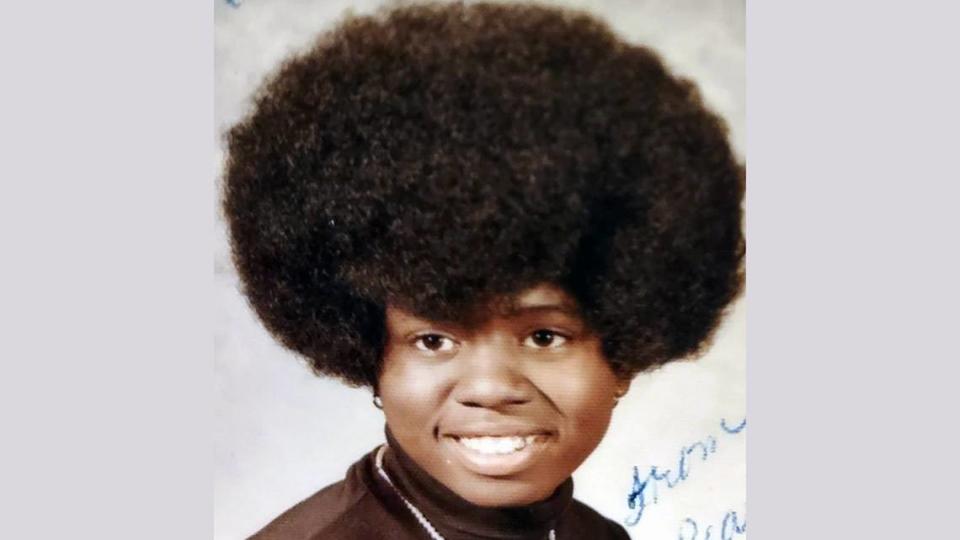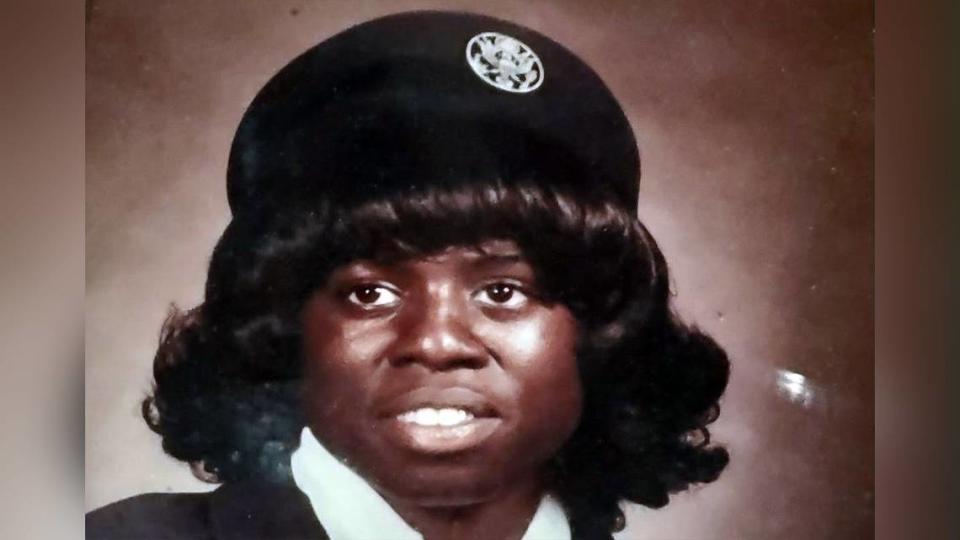For 27 years, murder suspect sat 3 stools down from victim’s niece at KCK bar | Opinion
When Arvetta Davis agreed to talk to me about her aunt, Sameemah Musawwir, who was murdered in Kansas City, Kansas 27 years ago, I was surprised by where she wanted to meet.
That’s because the To the Hoop Bar & Grill in KCK was the hangout of convicted drug kingpin and now accused sex trafficker Cecil Brooks. At least a couple of cops go there, and over the years, so have sex workers — a term I hate only slightly less than the alternatives, because it makes it sound like we’re talking about someone putting herself through grad school instead of someone out of options and being exploited. Those just in search of a drink and some tacos go too, of course, but it is a neighborhood bar with an exciting reputation.
“Do you know what this place is?” Arvetta asked after we settled in. I do, I told her, even though hearing about the place for years had not prepared me to know what to order at 11 a.m. (Hot tea, maybe? The bartender looked at me like oh, we don’t get that many visitors from Mars.)
“I brought you here for a reason,” Arvetta said. “Do you see that stool right there?” That, she said, is where, night after night and year after year, the man only recently charged with stabbing her beloved auntie 33 times regularly sat, three stools down from her.
She knew Gary Dion Davis — no relation to her family — from school, actually, and though they never exchanged a word in all their years of coming here, it infuriates her to think that all this time, “he was sitting here in plain sight. For 27 years, this man roamed this city and they let him.”
She says that because police got a DNA hit on Gary Davis back in 2003, in connection with the Christmas 1998 murder of Christina King. It took them 14 months after that to get around to questioning him, even though he was supposedly under “intensive” law enforcement supervision by Wyandotte County at the time.
After talking to Davis, they ran the DNA again, with the same result. Then, they did … nothing at all for 18 more years.
Some relatives blamed brother who found the body
Arvetta says her family heard nothing from anyone from November of 1996, when Sameemah died, until right before the KCKPD and Wyandotte County District Attorney called a news conference to ballyhoo that their cold case unit had solved the mystery and charged Gary Davis with killing both King and Musawwir, who before her marriage and conversion to Islam was known as Pearl Davis.
But why did it take them all this time to run Sameemah’s DNA, or to make an arrest in either case? There has got to be a reason police did not follow through, and since it can’t be that they hate clearing homicides, what was it? If Davis is good for these murders, who benefited from their failure to arrest him long ago?
What Arvetta is here to tell me, and all of you, is who suffered from that failure, and how.
There are victims when a crime goes unsolved, and when that failure is intentional, or even when it’s the result of indifference, that’s a kind of crime, too.
“There is no family since this happened,” Arvetta said, weeping, because her uncle, Joe Davis, who found the body of his 43-year-old sister, was blamed for the crime even by some relatives. “People thought he did it because he found her. He’s had this hanging over his head for 27 years.”
Sameemah’s girls, who were 15 and 13 at the time, lost not only their mother but their home, after that bouncing from place to place and according to Arvetta “living in fear.”
“It was like walking in a fog,” Sameemah’s older daughter, Quadriyyah Musawwir, who lives in a different state, told me. The minute she saw Arvetta come through the door the night her mother was killed, “I knew what I knew.”
But “not knowing the who, what, when, and why has you looking over your shoulder.” Even now, Quadriyyah said, “I honestly don’t know what to think.”

Air Force vet and singer who prayed 5 times a day
Not knowing has taken an awful toll: “Everybody dispersed” after the murder, said Arvetta, who was named for Sameemah’s college roommate at KU. Her message to the KCKPD and WyCo DA is that while showing up 30 years late is better than not at all, “you left this family without any hope” until it served you to “shuffle us in front of the media” at a news conference in some kind of pantomime of concern.
Investigators still, she said, haven’t ever really interviewed Joe Davis, who found his sister in the kneeling position in their late mother’s empty house, naked from the waist down, and with her shirt pulled up and breasts exposed. So many of the mostly Black women who were murdered in KCK and whose cases have never been solved were found this same way.
Sameemah had just recently lost her mother, and in her grief, had been getting high, Arvetta said. The autopsy found cocaine in her system and that night, Arvetta said, she’d apparently gone to her mom’s place after calling a drug connection: “I don’t believe in hiding s---,” she said, since doing that makes corruption possible. Still, “that wasn’t her.”
Because Sameemah was also an Air Force veteran, an entrepreneurial, well educated, opera singing woman who baked pies and prayed five times a day. “She was everything you needed,” Quadriyyah said.
Even among the Kansas City, Kansas women whose murders have never been solved, her death was extraordinarily brutal. So much so that her autopsy, conducted by Erik K. Mitchell, is 11 pages long because there were so many wounds to document. Dozens of deep cuts is not what you do to merely kill someone, but to torture them. Maybe it’s how you silence not only the victim, but others, too.
There is a preliminary hearing in both the King and Musawwir cases on Tuesday, and Gary Davis’s attorney, Sean Baker, said his client is pleading not guilty in both.
I look forward to hearing somebody there explain either who Davis is to have gotten a pass for 20 years, who he’s standing in for now, or both.

